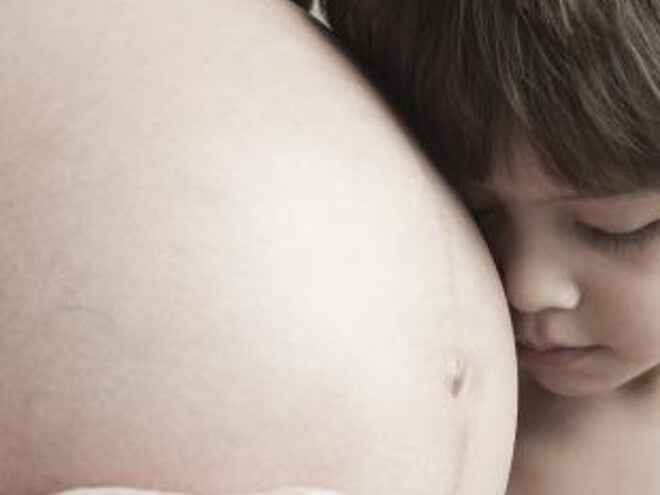
WEEK 4
Almost one month already! There are lots of things happening inside you this week.
BABY DEVELOPMENT
Your baby’ is starting to nestle in for the long haul – the egg cell has implanted in the uterus, the amniotic fluid and placenta are forming, and the fertilised egg cell has grown to a whopping 0.2 mm in diameter! This week is also an important milestone in her embryonic development: the beginning of what is called organogenesis: the outlines of many internal organs are starting to form, as is her bloodstream. At the end of the fourth week, your baby looks like a tiny decimal point floating in amniotic fluid and the foetal-placental circulation is set up and running. Amazingly, since her conception, her weight has multiplied by 10,000!
YOUR BODY
Six weeks since your last period, you’re in your 4th week of pregnancy. That gorgeous little speck has turned into a dot and the first cell has divided hundreds of times. He is making his move from your fallopian tubes into your uterus. Once he finds a nice comfy spot, he’ll burrow his way in and implant. That moment releases a big wave of hormones. They are essential for your baby, ensuring he’s got all he needs to grow. Those hormones will prevent you from having a period again while you’re pregnant. And they also help form the placenta. What does the placenta do? It supplies baby with oxygen and nutrients and serves to protect her against many germs and pollutants. But not all – if you haven’t given up smoking yet, now’s the time to do it! (Dads too!)
NUTRITION
Everyone says to “eat healthily” while pregnant but that can sometimes seem a tall, unspecific order. A great rule of thumb is to focus on its quality– it will help you instil good habits early in your pregnancy. Focus, too, on taking special care in preparing your food to avoid the risk of food poisoning, both for you and baby. Thoroughly cook your meat: steak tartare and undercooked meats are no-no’s! Wash your hands thoroughly after gardening or feeding pets, before cooking, and make sure you wash fruits and vegetables really well. If you have the time to clean the fridge regularly with soapy water and bleach, do so. Avoid eating leftovers in which bacteria might have had a chance to grow. A little caution can go a long way to keeping you and your baby feeling good!
TIPS
Is it a good idea to take a vitamin-mineral supplement while pregnant?
The medical community tends to agree that vitamin and mineral needs are usually covered by eating a balanced diet. However, the reality is that women often have an unbalanced diet. And pregnant women tend to need a higher intake of iron, calcium , vitamin D and folic acid. Taking a vitamin supplement can help fill some deficiencies. As with any medication, consult your doctor before taking any dietary supplements during your pregnancy. He or she can prescribe a supplement for you that caters to pregnancy. Caution: don’t play pharmacist! Wrong doses of certain nutrients (vitamin A, vitamin D, selenium , fluorine) can be bad for baby!
By the way, have you seen your gynaecologist? A first consultation before the end of the third month is in the cards. Your doctor will order a blood test for early pregnancy and schedule your first ultrasound, which will take place around the 12th week.

